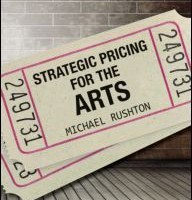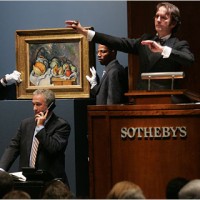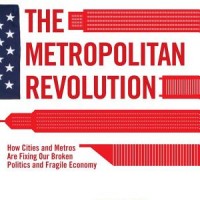Ok, not a blog post title likely to set your pulse racing, but with so much discussion in the arts world the past few years on the uses of data, a caveat. It is brought to mind by a story from Money magazine (a branch of Time), which has tried to make inroads on US News turf, and do some college rankings. These new rankings are all about 'value for money' - what does it cost to attend; what is the payoff in salary. Whatever your thoughts on that focus, my issue is with how the rankings are constructed. Money's method is given here. The … [Read more...]
Strategic pricing for the arts
I'm pleased to say my book on pricing in the arts has been released - Amazon link here, and Routledge link (including for ordering e-inspection copies) here. What's it all about? As I do on this blog, I have tried to give arts managers, and students of arts management, a systematic way of thinking about setting prices, for museums, performances and festivals, whether commercial, nonprofit, or public sector. There is a substantial academic literature on the subject, but much of it is aimed at the economics profession rather than … [Read more...]
Summer books: Brad Stone’s ‘The Everything Store’
In the past few months there are few businesses that have come in for such vilification as Amazon.com - including in many of the stories and blogs here at artsjournal.com - and so Brad Stone's book, subtitled 'Jeff Bezos and the Age of Amazon', is timely, to say the least. It has been the subject of deep reviews by George Packer at The New Yorker, and Steve Coll in The New York Review of Books, and I recommend each of those. It is hard in this case to separate a review of the book and a review of Amazon itself (I don't think I'm the only … [Read more...]
The cost of owning an art collection
Scott Sumner reckons the cost to the City of Detroit in owning (or giving away to a nonprofit) the collection at the Detroit Institute of Arts is about $185 million per year. He obtains this number not through looking at the cost of maintaining the collection, and paying the necessary personnel and building costs, but simply through foregone interest, assuming that cash invested in financial instruments could yield 5% return per year, and that the art could be sold for $3.7 billion. If we lower the assumed 5% and/or $3.7 billion, then the $185 … [Read more...]
Love of art and love of place
Those of us who teach classes in cultural policy at some point always engage our students in the fundamental question: why is government in the business of subsidizing the arts? Only when we have really thought about the ends of the policy can we think clearly about the best means to those ends. And there might be many: conservation of cultural traditions; cultural institutions as local amenities for current and possibly future residents; tourism; instilling civic values through the arts, for example. Here I want to focus on just one: making … [Read more...]
Droit de Suite revisited
Today at Slate, Whitney Kimball tries to make the case for US adoption of resale royalties for visual artists, or droit de suite: In what would become the first scandalously record-breaking Sotheby’s art auction in 1973, taxi magnate Robert Scull and his wife famously made a fortune on 50 artworks from their collection, which included Robert Rauschenberg’s painting Thaw. There, the artist watched as his piece, which he had initially sold for $900, hammered out for a whopping $85,000. As the story goes, Rauschenberg famously shoved Scull and … [Read more...]
Summer books: Bruce Katz and Jennifer Bradley’s ‘The Metropolitan Revolution’
A dozen years ago, mayors and their economic development staff made sure they had a copy of Richard Florida's The Rise of the Creative Class on their desks. It was the big new idea that would help them understand the dynamics of contemporary urban growth, and plan for the future of their cities. Adopt the urban amenities and policies that are attractive to young, mobile and skilled talent, or see your city left behind, and watch the brain drain to Portland and Austin, whose economies would flourish with educated, networked professionals … [Read more...]
Fixed book prices (updated)
France has passed anti-Amazon legislation. Publishing Perspectives reports: On Wednesday, the French parliament passed a long-debated law that will end Amazon.com’s ability to offer a combined 5% discount and free shipping on books shipped to France, according to Livres Hebdo. France’s fixed book price law, dubbed “The Lang Law,” was passed in 1981 and allows for a maximum 5% discount under varied positions. “The ‘Anti-Amazon Law,’ was created to prevent ecommerce sites like [the American giant] Amazon from stamping out the iconic network … [Read more...]
Dynamic pricing at the zoo
The Indianapolis Zoo has adopted dynamic pricing. The policy is combined with increased differentiation in prices between low-demand weekdays and high-demand weekends, and a general increase in prices arising from the increased demand that will flow from the new orangutang exhibit. The Indiana Business Journal reports: The zoo expects the move to generate more revenue as well as keep peak-day crowds to a more manageable level, improving the visitor experience. Officials are projecting 2014 attendance of 1.28 million, a 24-percent jump over … [Read more...]
Earmarked taxes for the arts
Last night Mecklenburg County (where Charlotte, NC is) commissioners voted to approve a referendum on increasing the sales tax by a quarter of a cent, some of which would be dedicated to culture: 7.5% of the proceeds to the Arts & Science Council and 5% of the proceeds to the public library. These earmarked funds for the arts are found across cities and metro areas across the US, sometimes funded by sales taxes (as in Denver or Salt Lake City) but also financed through taxes on motel/hotel stays, property taxes, tobacco taxes (as in … [Read more...]










